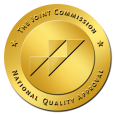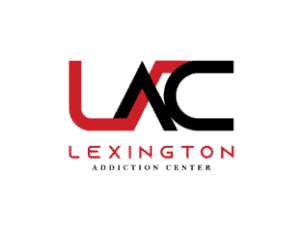Can You Convince Someone to Go to Rehab?
Drug and alcohol addiction impacts the lives of not only the person with addiction but their loved ones as well. Family members, co-workers, employers, and friends might wonder how to convince someone to go to rehab.
Getting a loved one to rehab isn’t easy. And, ultimately the decision is up to the person in need of recovery. At Lexington Addiction Center in Kentucky, we’re here to help those who struggle with addiction get the best treatment possible. We also provide support to their loved ones throughout the treatment process.
How to Convince Someone to Go to Rehab
Discussing rehab with a person who is addicted can be an emotional process. Therefore, you need to consider a few things before approaching your loved one. Instead of bringing up the subject of rehab out of blue, it is best to take a proactive approach. That way, you are prepared and less likely to allow emotions to overwhelm you.
The following tips can help you convince someone to go to rehab:
Learn About Addiction and Treatment
It is crucial to learn about your loved one’s addiction and treatment options. First, by learning about addiction, you gain an understanding of the problem. Oftentimes, family members and friends might come across as judgmental or perplexed. They might say things like “why can’t you just stop?” or “you’re choosing to be addicted.”
The truth about 12 nofollow noopener noreferrer3>addiction is much more complex. Your loved one never intended to become an addict. No one does. The following can help you learn more about addiction:
- Watch videos or read stories that recovering addicts and their loved ones have posted online to share
- Research addiction online, especially the specific substance your loved one uses
- Attend an 12 nofollow noopener noreferrer3>open AA or NA meeting, which is open to observers or others who aren’t in recovery themselves
Next, learn about treatment options. By learning more about how addiction is treated, you can come up with options that your loved one might be more receptive towards. Many treatment centers offer specialized treatment services that might suit your loved one’s needs better than others.
In addition, ask yourself the following to better understand what level of treatment is appropriate for your loved one:
- Have they been in treatment before or is this the first time?
- If they were in treatment before, did they complete the program? If not, why?
- Have they been sober for a time and are currently relapsing?
- Do they have a co-occurring mental health disorder?
- What substance are they addicted to? Do they use multiple drugs?
Learning more can also help you to gain control over your “knee-jerk” emotional responses to your loved one’s behavior.
Keep Your Emotions in Check
Addiction and rehab can be emotionally charged topics. You want to be sure that your own emotions are in-check before approaching a loved one. Of course, when the intervention occurs, emotions will come out. Therefore, you also want to plan how you will deal with these emotions in the moment.
First and foremost, you need to come from a place of concern. Talking to someone about rehab is not about shaming or blaming them. Rather, it is about recognizing a problem and helping your loved one get the help they deserve. The following can help you get your emotions in check:
- Talk to a trusted person about your concerns. You might want to consider someone outside of the situation so that they can be neutral and let you talk openly or vent.
- Discuss your feelings and emotions with a professional. Therapy can also help the loved ones of those addicted. Family members are especially prone to struggle when they live with an addict.
- Attend a support group for friends and family of addicts. There are many support groups for the loved ones of addicts. Al-Anon is one of the most well-known, however, there are several other groups as well. Many groups now meet up via online chat platforms.
- Plan what you will do if your emotions do become overwhelming. Preparation is not just about preventing emotional outbursts. It is also about what you will do if emotions start getting out of control. For instance, you might need to take a break to calm down while another loved one jumps in.
Connect With Professionals and Plan an Intervention
Contact an addiction treatment center to learn more about how to convince someone to go to rehab. Many treatment centers will offer valuable information for you, even if you aren’t a client or your loved one chooses another facility. It’s best to make connections and pick a few treatment centers that you think your loved one would attend. That way, when you do have an intervention, you can present options for them or point them in the right direction
Some centers even offer professional interventionists to assist you in an intervention. Planning an intervention with professional guidance is always best. However, if you can’t find a professional interventionist, most prospective rehab centers you are recommending to your loved one will often offer advice and tips over the phone.
Remember You Might Not Succeed
While you might have learned all you can about how to convince someone to go to rehab, the choice will not be up to you. If your loved one doesn’t want help, you can’t force them into it.
However, it is important to remain positive and remember that getting someone into rehab is also a process. And, you might need to have several conversations over the course of months or years to succeed. Just remember, the next time you talk to them about rehab might be the time they finally choose to go.
Help a Loved One Find Rehab Today
Talking to a loved one about going to rehab isn’t easy. However, you don’t need to do it alone. Lexington Addiction Center in Kentucky is here to help you and your loved one through the treatment process. We’re available to answer your questions about your loved one’s addiction and treatment needs. Contact us today to speak to our team.
FAQ: How to Convince Someone to Go to Rehab
-
Why is it so hard to convince someone to go to rehab?
Convincing someone to go to rehab is challenging because addiction rewires the brain in ways that interfere with judgment, motivation, and emotional regulation. People struggling with substance use often develop denial, rationalization, and minimization — psychological defenses that help them justify continued use and resist change. Because addiction alters reward and stress pathways in the brain, substances begin to feel like the most reliable source of relief from emotional discomfort, even when they cause significant harm. Many individuals who need treatment genuinely believe they can stop on their own or that their use isn’t a problem, which makes conversations about rehab feel accusatory or confrontational rather than supportive. Fear also plays a major role: fear of withdrawal symptoms, fear of stigma, fear of losing social connections or routines, and fear of facing painful emotions without the “crutch” of substances can make the idea of rehab seem overwhelming. Emotional attachment to substances can feel like a source of comfort or identity, further complicating motivation. These dynamics mean that simply telling someone to go to rehab rarely works — effective conversations require empathy, patience, strategic planning, and an understanding of how addiction shapes thoughts and behavior.
-
What is the best time to approach someone about seeking rehab?
The timing of a conversation about rehab can make a significant difference in how the message is received. It’s generally best to approach the topic when the person is sober, calm, and relatively free from immediate stress or conflict. Trying to discuss rehab while someone is under the influence often results in defensiveness, denial, or shutting down because substances temporarily suppress insight and emotional regulation. The ideal moment is one in which the person is receptive, rested, and able to think clearly — for example, when they are having a good day or have expressed frustration with their struggles. Choosing a private, low-pressure setting also helps, because the person is less likely to feel cornered or publicly judged. Before approaching the conversation, take time to prepare: know what you want to say, gather information about treatment options, and anticipate emotional responses. Asking open-ended questions like “How are you feeling about your substance use?” or “What are your goals for the future?” can gently open the door to a deeper conversation. A planned, empathetic dialogue is much more effective than a spontaneous confrontation, which often evokes defensiveness rather than willingness.
-
How can I communicate without sounding judgmental or confrontational?
Communicating in a way that’s nonjudgmental and supportive is key when talking to someone about rehab. Start by using “I” statements rather than “you” statements. For example, saying “I feel worried when I see how much you’re struggling” expresses concern without accusing or shaming. Avoid language that blames, criticizes, or labels — such as “you’re ruining your life” or “you’re weak” — because these phrases trigger defensiveness and resistance. Listen actively, acknowledging their feelings and experiences even if you don’t agree with them. Sometimes simply saying, “I hear how hard this feels for you” makes the person feel understood and opens the door for deeper connection. It’s also helpful to express empathy before offering solutions; people are more receptive when they feel heard and respected. Offer information rather than ultimatums, and check in with questions like, “Would you be open to exploring treatment options together?” rather than demanding immediate action. Your tone, body language, and patience send powerful messages about your intentions. A calm, understanding, and compassionate approach helps create a space where the person feels safe rather than attacked — which increases the likelihood they will consider your perspective.
-
Should I stage an intervention, and if so, what does that involve?
Interventions can be effective when approached with careful planning, professional guidance, and clear intentions — but they’re not a one-size-fits-all solution. An intervention typically involves a structured conversation with family members, close friends, and sometimes a trained interventionist who guides the process. The goal isn’t to ambush the person but to express care, concern, and the collective desire to help them access treatment. In an effective intervention, participants prepare beforehand — identifying specific examples of how substance use has affected the person’s life, offering supportive language, and presenting clear plans for treatment options and logistics. A trained interventionist can help structure the conversation so it stays focused, respectful, and goal-oriented, while also preparing participants for emotional reactions such as denial, anger, or tears. Interventions are most successful when they are not accusatory but communicate that loved ones are coming together out of concern and support, not judgment. They often include a direct offer of treatment options with follow-through plans, transportation arrangements, and immediate next steps. While interventions can be emotionally intense, a thoughtfully coordinated approach often increases the chances that someone feeling stuck will agree to take the first step toward recovery with a supportive network behind them.
-
How can family and friends offer support without enabling substance use?
Supporting someone with a substance use struggle means balancing empathy with accountability — a line that can be hard to walk without enabling unhelpful behavior. Enabling occurs when well-intentioned actions remove natural consequences or protect the person from experiencing the impact of their use, unintentionally reinforcing the cycle. Examples of enabling include covering up problems, giving money without accountability, making excuses for missed responsibilities, or minimizing how serious the situation is. Instead, support should focus on encouraging healthier choices, setting healthy boundaries, and reinforcing positive behaviors. Clearly communicate what you’re willing to do — such as helping find treatment options, providing emotional support, or attending support groups together — and what you aren’t willing to do, like giving money that could be used to obtain substances or lying to protect them. Consistency is critical — boundaries that change depending on mood or circumstance are less effective. Encourage engagement with professional help and acknowledge progress without pressuring or shaming. Supporting someone doesn’t mean fixing every problem; it means helping create conditions where the person is more likely to choose help and develop the skills needed for long-term recovery.
-
What should I do if my loved one refuses to go to rehab?
If your loved one refuses to go to rehab, it’s important to stay calm, patient, and persistent without resorting to threats or ultimatums that might escalate conflict. Denial and fear of change are common barriers to accepting help, especially when addiction has affected emotional regulation and decision-making. Reframe your language to emphasize care — remind them you want to support their well-being, not control their choices. Offer information about treatment options without forcing decisions, and let them know you are available to help when they’re ready. Sometimes “planting seeds” through repeated, gentle conversations over time is more effective than a single heated discussion. Encourage them to explore support without commitment by suggesting confidential assessments or brief consultations with professionals. If possible, share stories of others who have benefited from treatment, as seeing examples of positive change can soften resistance. Focus on building trust so they feel comfortable discussing fears or hesitations about rehab. In the meantime, continue modeling boundaries and support, and consider seeking support for yourself through family counseling or support groups. Even if they say “no” now, a consistent supportive presence often increases the likelihood they’ll reconsider when they feel safe and understood.
-
How can treatment professionals help in convincing someone to get help?
Treatment professionals can be extremely helpful because they understand both the medical and psychological aspects of addiction and know how to communicate with someone who may be defensive or resistant. A trained clinician can conduct a confidential assessment, provide education about substance use and treatment options, and help the person understand how addiction affects their health, relationships, and quality of life. Sometimes, a conversation with a professional — who is neutral, nonjudgmental, and informed — opens the door for self-reflection in ways that family members struggle to achieve. Professionals can also guide loved ones on effective communication strategies, help plan interventions, and assist with logistical details like insurance, transportation, and admissions. For people with co-occurring conditions like anxiety or depression, clinicians can illustrate how treatment addresses both addiction and underlying emotional factors. Treatment teams often offer motivational interviewing, which is a collaborative approach designed to help individuals explore and resolve ambivalence about change, increasing motivation for treatment without coercion. When the person sees that there is a structured, compassionate plan and that help is available in a safe environment, reluctance often softens. Professional involvement provides expertise, emotional support, and a roadmap that makes taking the first step far less intimidating.
-
What are realistic expectations when trying to convince someone to enter rehab?
When trying to convince someone to enter rehab, it’s important to set realistic expectations about timing, emotional responses, and outcomes. Change rarely happens instantly — especially with addiction — and people often move through stages of readiness for change at their own pace. Initial conversations may not lead to an immediate agreement, but they can plant seeds of awareness that contribute to motivation over time. Expect a range of emotional responses — including denial, anger, defensiveness, hesitation, or ambivalence — and recognize that these reactions are common and not personal rejections. Successful encouragement is often gradual, involving multiple supportive conversations, ongoing boundary-setting, and consistent demonstration of care. Celebrate small steps — like agreeing to talk to a professional or attending a support group — as progress rather than waiting only for full agreement to enter rehab. Be prepared that the person may change their mind more than once, and your support may need to remain steady during ambivalent moments. Ultimately, the goal is not to “force” change but to create an environment of understanding, safety, and informed choice that increases the likelihood the person will decide for themselves that help is necessary and valuable.
Blog Content Disclaimer – Educational & Informational Use
The content published on Lexington Addiction Center blog pages is intended for general educational and informational purposes related to addiction, substance use disorders, detoxification, rehabilitation, mental health, and recovery support. Blog articles are designed to help readers better understand addiction-related topics and explore treatment concepts, but they are not a substitute for professional medical advice, diagnosis, or individualized treatment planning.
Addiction and co-occurring mental health conditions are complex medical issues that affect individuals differently based on many factors, including substance type, length of use, physical health, mental health history, medications, age, and social environment. Because of this variability, information discussed in blog articles—such as withdrawal symptoms, detox timelines, treatment approaches, medications, relapse risks, or recovery strategies—may not apply to every individual. Reading blog content should not replace consultation with licensed medical or behavioral health professionals.
If you or someone you know is experiencing a medical or mental health emergency, call 911 immediately or go to the nearest emergency room. Emergencies may include suspected overdose, seizures, difficulty breathing, chest pain, severe confusion, hallucinations with unsafe behavior, loss of consciousness, suicidal thoughts, or threats of harm to oneself or others. Lexington Addiction Center blog content is not intended for crisis intervention and should never be used in place of emergency care.
Detoxification from drugs or alcohol can involve serious medical risks, particularly with substances such as alcohol, benzodiazepines, opioids, and certain prescription medications. Withdrawal symptoms can escalate quickly and may become life-threatening without proper medical supervision. Any blog content describing detox, withdrawal, or substance cessation is provided to raise awareness and encourage safer decision-making—not to instruct readers to detox on their own. Attempting self-detox without medical oversight can be dangerous and is strongly discouraged.
Blog articles may discuss various addiction treatment options, including medical detox, residential or inpatient rehab, outpatient programs, therapy modalities, medication-assisted treatment, aftercare planning, and recovery support services. These discussions reflect commonly used, evidence-informed approaches but do not represent guarantees of effectiveness or suitability for every person. Treatment recommendations should always be based on a comprehensive assessment conducted by licensed professionals.
Information related to insurance coverage, treatment costs, or payment options that appears within blog content is provided for general informational purposes only. Insurance benefits vary widely depending on the individual’s plan, carrier, state regulations, and medical necessity criteria. Coverage details may change without notice, and no insurance-related statements on blog pages should be interpreted as a promise of coverage or payment. Lexington Addiction Center encourages readers to contact our admissions team directly to verify insurance benefits and eligibility before making treatment decisions.
Some blog posts may reference third-party studies, external organizations, medications, community resources, or harm-reduction concepts. These references are provided for educational context only and do not constitute endorsements. Lexington Addiction Center does not control third-party content and is not responsible for the accuracy, availability, or practices of external websites or organizations.
Blog content may also include general advice for families or loved ones supporting someone with addiction. While these discussions aim to be supportive and informative, every situation is unique. If there is an immediate safety concern—such as violence, overdose risk, child endangerment, or medical instability—emergency services or qualified professionals should be contacted right away rather than relying on online information.
Use of Lexington Addiction Center blog pages does not establish a provider–patient relationship. Submitting comments, contacting the center through a blog page, or reading articles does not guarantee admission to treatment or access to services. Recovery outcomes vary, and no specific results are promised or implied.
If you are struggling with substance use, withdrawal symptoms, or questions about treatment, we encourage you to seek guidance from licensed healthcare providers. For personalized information about treatment options or insurance verification, you may contact Lexington Addiction Center directly. For emergencies, call 911 immediately.
-

Call or message us
You’ll connect with a compassionate admissions coordinator who understands what you’re going through. -

Free assessment
We’ll ask about your drug use, medical history, and mental health to help build the right plan. -

Insurance check
We’ll verify your benefits and explain exactly what’s covered—no surprises. -

Choose a start date
If you’re ready, we can often schedule your intake the same week.
-
→ Contributors
-
→ Accreditations & Licenses
 The Joint Commission
The Joint Commission
Awarded The Gold Seal of Approval® for meeting rigorous performance standards in safety, quality, and patient care. LegitScript Certified
LegitScript Certified
Validates compliance with laws and regulations, confirming transparency and accountability in addiction treatment marketing.BBB Accredited
Demonstrates ethical business practices, client satisfaction commitment, and a trusted reputation in the community.Psychology Today Verified
Verified listing on Psychology Today, a trusted directory for addiction treatment providers and behavioral health centers.HIPAA Compliant
Ensures all patient health information is protected and managed under strict federal privacy and security standards.NAATP Member
Lexington Addiction Center is a proud member of the National Association of Addiction Treatment Providers (NAATP). 5-Star Google Reviews
5-Star Google Reviews
Recognized for consistent 5-star ratings, reflecting excellent care and trusted patient experiences at Lexington Addiction Center.Help.org Recognition
Recognized by Help.org for quality addiction treatment services and community impact. -
→ Meet Our Team
At Lexington Addiction Center, we believe that recovery is a journey, not a destination. That’s why we offer a comprehensive continuum of care, delivered by a team of experienced and compassionate professionals. Our team is made up of licensed therapists, counselors, nurses, and other professionals who are passionate about helping people achieve lasting sobriety. Whether you are just starting your recovery journey or you are a seasoned veteran, we are here to support you every step of the way. We believe in you, and we are committed to helping you achieve your recovery goals.
-
→ Tour Our Rehab Center
Explore Lexington Addiction Center’s drug & alcohol detox rehab treatment center in Lexington, KY and step into private therapy offices, spacious group rooms, and tranquil lounges where thoughtful design supports every stage of substance-use recovery.
Addiction Treatment Services
Mental Health Services
Treatment Programs
Yes, Your Insurance Covers Detox and Rehab Treatment
Complete a free, confidential Verification of Benefits to learn more about what resources may be available to you.

Contact Us Today

Addiction and co-occurring disorders don’t have to control your life. Lexington Addiction Center is waiting with open arms to give you the tools necessary for lasting change. Reach out to us today to learn more.

 859-681-7823
859-681-7823







